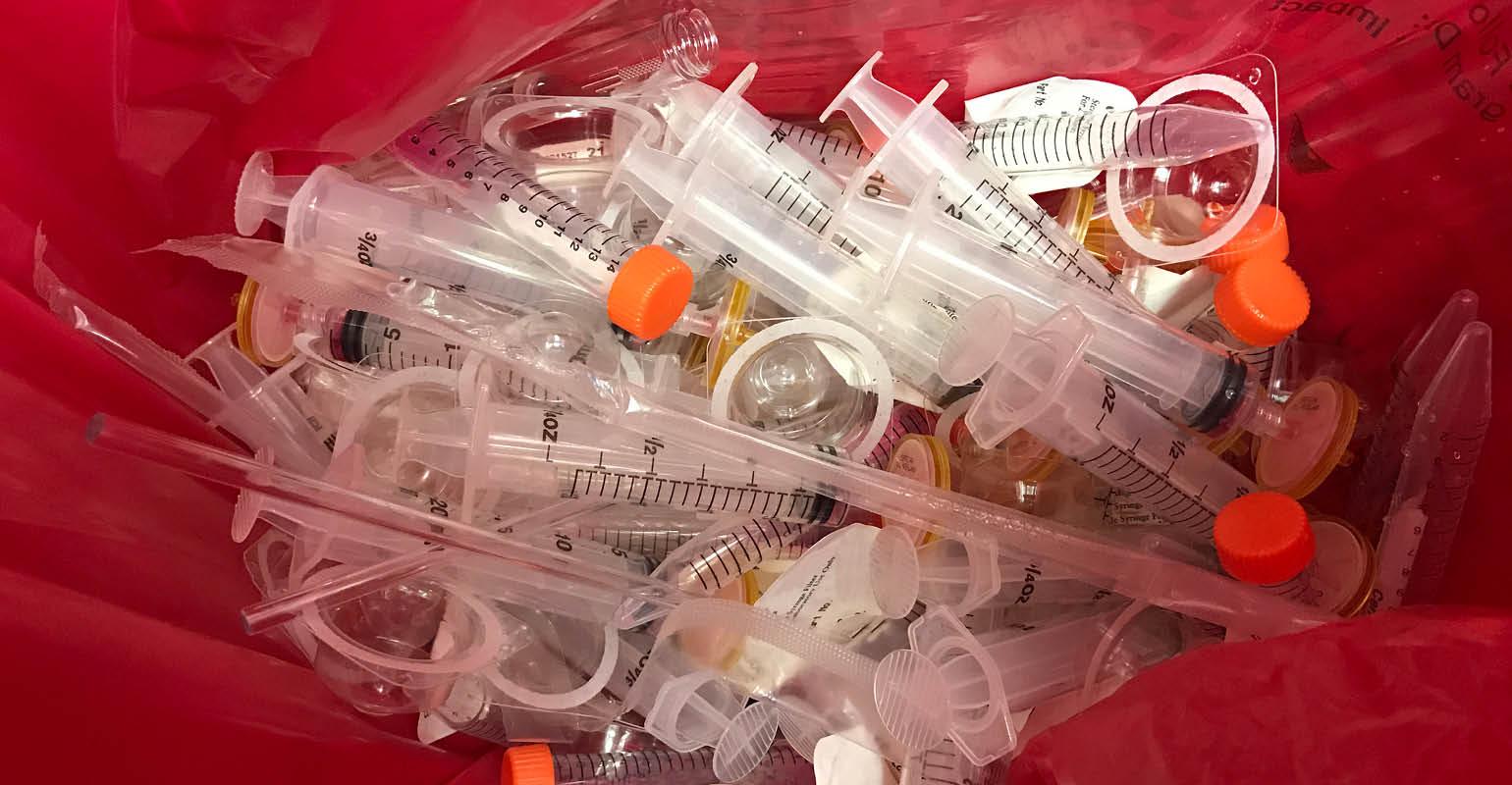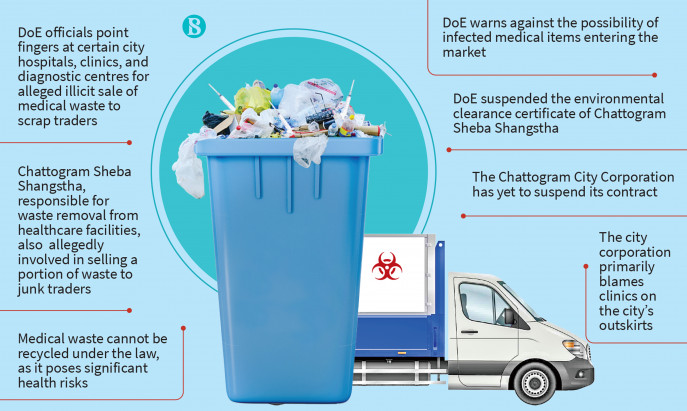Stay Ahead of Laws: Specialist Advice on Medical Waste Disposal
In a world where the health care sector is frequently advancing, it is critical for medical centers to stay in advance of policies when it comes to the correct disposal of medical waste. From recognizing the various categories of clinical waste to applying the right collection and partition methods, this conversation will give useful understandings and actionable ideas to assist centers remain ahead of policies in the ever-changing landscape of medical waste disposal.
Comprehending Clinical Waste Categories
Recognizing medical waste groups is essential for correct disposal and management in medical care centers. Medical waste refers to any waste created by health care tasks that may position a risk to public health or the setting. It is critical to categorize medical waste accurately to guarantee its secure handling, treatment, transportation, and disposal.
There are numerous categories of clinical waste that health care centers require to be familiar with. One of the most typical categories consist of contagious waste, pathological waste, sharps waste, pharmaceutical waste, and chemical waste. Each group has specific guidelines and policies for its appropriate monitoring and disposal.
Contagious waste consists of products contaminated with blood or other bodily liquids, such as handwear covers, dress, and laboratory cultures. Pathological waste refers to human tissues, organs, or body components that call for special delivery and disposal. Sharps waste includes utilized needles, syringes, and other sharp items that can create injury and transmit infections. Drug waste consists of expired, extra, or infected medications that need cautious handling and disposal. Lastly, chemical waste consists of solvents, anti-bacterials, and other chemical materials used in healthcare centers.
Staying Up-To-Date With Regulatory Modifications
Staying present with governing changes is important for medical care centers to guarantee compliance and correct administration of medical waste disposal. medical waste removal service. With laws constantly developing, it is necessary for healthcare facilities to remain up-to-date to stay clear of charges, fines, and possible damage to the environment and public health
To remain ahead of governing modifications, healthcare centers need to develop a system for monitoring and monitoring updates. This can be done by signing up for regulatory e-newsletters, going to workshops and meetings, and actively joining market organizations. In addition, centers must assign an employee or group in charge of staying notified and disseminating info to appropriate stakeholders.
Normal interaction with governing agencies is also crucial. Healthcare centers must establish partnerships with local, state, and government firms to ensure they recognize any type of adjustments in regulations that may influence their waste management methods. This can be done through regular meetings, engagement in public remark periods, and positive engagement with regulatory companies.
Furthermore, medical care facilities need to consider partnering with waste monitoring companies that specialize in clinical waste disposal (medical waste disposal services with WasteX). These firms are frequently skilled in the latest policies and can supply support and assistance to make certain compliance
Implementing Appropriate Collection and Segregation Techniques
To successfully take care of clinical garbage disposal, health care centers have to develop correct collection and partition techniques based on governing guidelines. Carrying out these approaches makes certain the secure handling and disposal of potentially dangerous materials, protects the environment, and decreases the threat of infections and injuries to health care employees and the public.
Proper collection and segregation techniques entail the usage of marked containers and classifying systems. Health care facilities need to give plainly identified containers for different sorts of clinical waste, such as sharps, infectious waste, pharmaceutical waste, and non-hazardous waste. These containers should be color-coded and plainly significant to avoid complication and advertise simple identification.
In addition, health care facilities should educate their personnel on the right treatments for collecting and setting apart medical waste. This includes enlightening them on the different kinds of waste, the appropriate containers to make use of, and the relevance of complying with laws and standards. Regular training sessions and refresher course programs should be carried More Info out to guarantee that personnel continue to be up-to-date on finest techniques.
Moreover, healthcare centers ought to develop a system for regular collection and disposal of clinical waste. This may include partnering with licensed waste administration companies that focus on clinical waste disposal. These firms will make sure that the collected waste is moved and gotten rid of in conformity with regulative needs.
Choosing the Right Disposal Techniques

Incineration is just one of one of the most common and effective approaches for getting rid of specific sorts of medical waste, such as pathological waste and sharps. It includes the controlled combustion of waste at high temperatures, minimizing it to ash. Incineration can launch unsafe toxins right into the air and contribute to air pollution.

Other disposal methods include chemical therapy, microwave therapy, and landfilling. Chemical therapy involves using chemicals to neutralize the waste and decontaminate. Microwave therapy utilizes microwave energy to heat and disinfect the waste. Landfilling entails burying the waste in a designated garbage dump area (medical waste disposal services with WasteX). Landfilling must be the last hotel due to the potential risk of contamination to dirt and groundwater.
Making Certain Conformity With Documents and Training
After carefully taking into consideration the suitable disposal methods for medical waste, healthcare centers need to make sure compliance with laws and minimize environmental impact by applying reliable documentation and training treatments. This action is critical in preserving a sustainable and secure setting for both healthcare workers and the basic public.

Training is equally vital in making sure conformity with laws. Health care employees that handle medical waste must obtain appropriate training on waste segregation, managing, and disposal treatments. This training should cover topics such as the appropriate use personal protective equipment, identification of different types of waste, and the right disposal approaches for each waste category. By providing detailed training, health care centers can equip their team to make enlightened choices and decrease the threat of inappropriate garbage disposal.
Final Thought
In final thought, staying ahead of regulations in clinical garbage disposal is vital for medical care centers. medical waste removal services. Comprehending the different categories of clinical waste, staying updated with governing adjustments, carrying out appropriate collection and segregation methods, choosing the ideal disposal techniques, and making sure compliance with documentation and training are all essential actions. By complying with these guidelines, healthcare companies can successfully manage and get rid of of clinical waste in a liable and risk-free way
From understanding the various classifications of medical waste to applying the best collection and partition techniques, this discussion will provide actionable tips and beneficial insights to aid facilities remain in advance of guidelines in the ever-changing landscape of clinical waste disposal. - medical waste disposal services with WasteX
The most usual classifications consist of infectious waste, pathological waste, sharps waste, pharmaceutical waste, and chemical waste. Health care facilities should give clearly labeled containers for different types of medical waste, such as sharps, contagious waste, pharmaceutical waste, and non-hazardous waste. Health care facilities must develop a detailed system to videotape and track all facets of clinical waste disposal, consisting of kinds of waste created, amounts, and disposal techniques utilized. Health care workers who deal with medical waste should receive appropriate training on waste partition, taking care of, and disposal treatments.